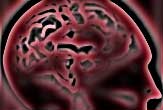Validity of 'Repressed Memories' Challenged in Court

Get the world’s most fascinating discoveries delivered straight to your inbox.
You are now subscribed
Your newsletter sign-up was successful
Want to add more newsletters?

Delivered Daily
Daily Newsletter
Sign up for the latest discoveries, groundbreaking research and fascinating breakthroughs that impact you and the wider world direct to your inbox.

Once a week
Life's Little Mysteries
Feed your curiosity with an exclusive mystery every week, solved with science and delivered direct to your inbox before it's seen anywhere else.

Once a week
How It Works
Sign up to our free science & technology newsletter for your weekly fix of fascinating articles, quick quizzes, amazing images, and more

Delivered daily
Space.com Newsletter
Breaking space news, the latest updates on rocket launches, skywatching events and more!

Once a month
Watch This Space
Sign up to our monthly entertainment newsletter to keep up with all our coverage of the latest sci-fi and space movies, tv shows, games and books.

Once a week
Night Sky This Week
Discover this week's must-see night sky events, moon phases, and stunning astrophotos. Sign up for our skywatching newsletter and explore the universe with us!
Join the club
Get full access to premium articles, exclusive features and a growing list of member rewards.
Defrocked priest Paul R. Shanley was convicted in 2005 of preying on children in his Boston parish for decades. Shanley's case came to light amid a clergy sex abuse scandal in 2002 when church records revealed that officials knew of pedophile priests among them but did little to stop it.
There were dozens of priests and hundreds of victims involved, but Shanley's case is unusual in that there is no corroborating evidence of his crimes. Often in cases of accusations of sexual abuse — even ones that occurred years earlier — there is some other supporting proof. But the only evidence against Shanley was the memory of a now-grown man who said he didn't recall the abuse until 2002 when he heard about a newspaper article on the clergy abuse scandal. That, he claimed, triggered a flood of memories of abuse that had occurred decades earlier at Shanley’s hand.
The problem? What the victim claims is unheard of in science.
Shanley's lawyer argued that the former priest deserves a new trial because the jury relied on misleading "junk science" testimony about repressed memories, wrongly suggesting that such memories were considered valid by the psychological and scientific community. (Indeed, a judge concluded that repressed memories are "generally accepted by the relevant scientific community of mental health professionals.")
Shanley's lawyer is correct: There is no scientific consensus (and little research suggesting) that people can completely forget about traumatic events, only to recall them in detail years or decades later.
In fact, studies involving Holocaust survivors and war veterans have consistently found exactly the opposite: The difficulty for those people is not remembering their ordeals, but forgetting them. About 100 scientists, researchers, and psychologists signed an amicus brief in Shanley's case, informing the judge that the theory of repressed memories has little or no scientific basis.
During the 1980s and 1990s, there were many high-profile child abuse cases that rested on little other than claims of recovered memories. In nearly all the cases, social workers, police, and detectives asked leading questions of children in their efforts to uncover the "truth." At times interviewers and therapists would badger the children until they said what they wanted or expected to hear.
Get the world’s most fascinating discoveries delivered straight to your inbox.
Repressed memories are often elicited through suggestion and hypnosis, in which the subject is encouraged to relate stories which may or may not have actually happened.
While the public often thinks of hypnosis as a magical mental shortcut to the truth, in the fact the opposite is more often the case. As I wrote in a previous column, repressed memories even played a key role in creating America's first UFO abduction case when Betty and Barney Hill described their "repressed memories" of being abducted and experimented upon by aliens. Suggestion by careless therapists has also been implicated in creating Multiple Personality Disorder.
This is just another reminder of how fragile human memory can be. Most of us go through our lives assuming that our memories are pretty good, and that we accurately remember events we experience. A recent study has shown that many subjects who are shown fake videos of things they never experienced can come to adopt the fictional accounts as real personal experiences. This finding has real-world implications, and especially for anyone who might be accused of a crime based on only recovered memories.
It is of course possible that Shanley's accuser's memories are real, or that while Shanley is innocent of this crime, he is guilty of others. And it is possible that Shanley is a completely innocent man who has been wrongly convicted based upon junk science. Whether Shanley wins a new trial remains to be seen, but justice wins when pseudoscience is kept out of the courtroom.
- Pill Could Erase Bad Memories
- Top 10 Unexplained Phenomena
- All About Memory
Benjamin Radford is managing editor of the Skeptical Inquirer science magazine. His books, films, and other projects can be found on his website. His Bad Science column appears regularly on LiveScience.

 Live Science Plus
Live Science Plus










